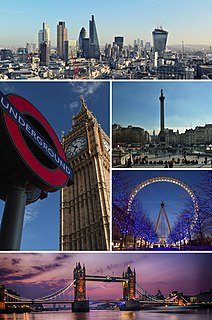
Below is a partial list of Fellows of the Royal Society of Arts (formally, the Royal Society for the Encouragement of Arts, Manufactures and Commerce). [1] A Fellow of the Royal Society of Arts is entitled to use the post-nominal letters FRSA after his or her name. [2]

The Royal Society for the Encouragement of Arts, Manufactures and Commerce (RSA) is a London-based, British organisation committed to finding practical solutions to social challenges. Founded in 1754 by William Shipley as the Society for the Encouragement of Arts, Manufactures and Commerce, it was granted a Royal Charter in 1847, and the right to use the term Royal in its name by King Edward VII in 1908. The shorter version, The Royal Society of Arts and the related RSA acronym, are used more frequently than the full name.

Fellowship of the Royal Society for the encouragement of Arts, Manufactures and Commerce (FRSA) is an award granted to individuals that the Royal Society of Arts (RSA) judges to have made outstanding achievements to social progress and development. In the official language of the Fellowship Charter, the award recognizes the contributions of exceptional individuals from across the world who have made significant contributions relating to the Arts, Manufacture and Commerce. Fellowship is only awarded to those who can demonstrate that they have made significant contributions to social change, and support the mission of the RSA. Fellows of the RSA are entitled to use the post-nominal letters FRSA. Fellows of the Royal Society of the Arts are entitled to use of the RSA Library and premises in central London.
Post-nominal letters, also called post-nominal initials, post-nominal titles or designatory letters, are letters placed after a person's name to indicate that the individual holds a position, academic degree, accreditation, office, military decoration, or honour, or is a member of a religious institute or fraternity. An individual may use several different sets of post-nominal letters, but in some contexts it may be customary to limit the number of sets to one or just a few. The order in which post-nominals are listed after a name is based on rules of precedence and what is appropriate for a given situation. Post-nominal letters are one of the main types of name suffix. In contrast, pre-nominal letters precede the name rather than following it.






